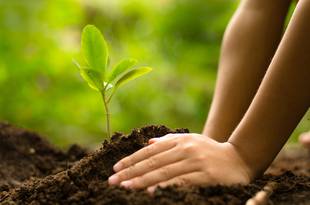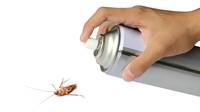
The world seems to be changing at a faster rate today than it was five centuries ago. Progress is unstoppable. Unfortunately man's quest for continuous progress led him to commit grave errors - the wanton neglect of the environment that supports his very existence. The denudation of forests and mountains, the destruction of the coral reefs, the pollution of the air, land and water, the hole in the ozone layer, toxic wastes, all these created a great imbalance in nature. The ecology is in disarray and our environment is gasping for dear life. How can we help?
Here are 30 or so environmental-conscious suggestions, the Do's, the Don'ts and more:
1. Learn about your environment and the ecosystem. Environmental consciousness starts within oneself by doing whatever things, no matter how small, for the good of and in harmony with nature.
2. Speak out for and in behalf of Mother Nature. Tell as many people as you can of how important it is to keep her alive and well.
3. Plant a tree in every convenient place you see. Way back in the 1970's the Green Revolution Project was a big success. Unfortunately all the trees that have been planted during those times were logged over in the late 1980's. Let's start another Green Revolution.
4. Buy and eat fresh foods such as fish, meat, fruits and vegetables instead of the canned and processes ones. Not only is it directly and indirectly more beneficial to your health but this will also lessen packaging garbage such as plastics, cans, cartons and bottles.
5. Don't throw away recyclable items, especially when they can be recycled at minimal cost. Recycling is the name of the game. Apply it to whatever material possible.
6. Don't just dump your garbage; sort them up. Collect and sell recyclable by-products like paper, plastics, bottles and aluminum (and tin) cans, and use biodegradable waste as compost pit fertilizers. Experts estimate that if every household will do this scheme, it will lessen the volume of garbage by as much as 75 percent.
7. Don't use anything with aerosol sprays. Save the ozone layer.
8. Do not patronize or use products made by companies that pollute our rivers and atmosphere.
9. Stop land conversion especially on hilly and mountainous areas. You don't want another Cherry Hills disaster.
10. Don't encroach on natural waterways such as rivers and lakes. Maintain setbacks as prescribed by Civil and Building Codes.
11. Golf courses should be re-converted into forests and parks. A golf course uses more water to maintain its greens than an entire province 10,000 times greater in area. Besides forest trees are certainly more important than useless golf courses.
12. Help protect our national parks by reporting to the authorities and the media any activities that may endanger the natural surrounding of the area such as logging, quarrying, mining, garbage dumping and the likes.
13. Suggestion to the Central Bank of the Philippines: Return the Flora and Fauna design (1983) on our coins. They symbolize our natural heritage and resources and also serve as a good reminder of wildlife conservation.
14. Suggested punishment for environmental polluters: Tie them to a lamp post along the most polluted portion of highway, or along the dirty river with their body immersed in the polluted water up to the neck.
15. To teachers and educators: Encourage environmental awareness among your students by incorporating the topic in your class discussions.
16. To engineers and architects: Specify only materials which are environment-friendly. Do not patronize, use or incorporate in your design materials with high levels of toxicity, hazardous to the environment, or which may cause the endangering of the ecology and wildlife species such as exotic woods, spelean materials, corals, and the likes.
17. To doctors and healers: Prescribe natural and herbal medicine as much as possible and whenever possible, and encourage the planting of medicinal plants. Do not rely on manufactured drugs alone. Promote awareness to the importance of the rainforests and wetlands as future sources of medicines.
18. To journalists (and publishers): Write more about the environment and try to educate the people through your articles on how to protect and conserve our wildlife and natural resources.
19. To advertisers (and publication marketing executives): Do not promote or endorse products and services which are directly or indirectly harmful to the environment. Refuse publishing their commercials. Environmental activism is best fueled through the media.
20. To the farmers (and gardeners): Avoid using chemicals for fertilizers and pesticides. They may show good results at first but have a long-term destructive effect on the soil, to the plants and animals, as well as to people. Do not plant genetically-modified plants that have been proven destructive to the surrounding ecology.
21. To the fishermen: Catch only the large, adult and edible fishes (and other sea foods). Return the small fishes and inedible ones back to the sea. Do not use dynamite, cyanide, drift nets (and the likes) to catch fish.
22. To office workers: Use the least paper as much as possible. Print as little as possible. Learn to store data electronically - it is the most convenient, the cheapest, consumes the least space and, if taken cared of properly, can last for hundreds of years.
23. To the factory owners: Do not dump your waste materials directly into the drainage system or into rivers. Set up pollution control, waste management and recycling facilities. It may cost more but in the long run, they are worth it.
24. To the artists, singers, composers, actors and moviemakers: You can help by doing pieces on the beauty and importance of forests, coral reefs, pristine rivers and mother nature as a whole. Refuse to do or appear on commercials or endorse products harmful to the environment.
25. To car owners, drivers and transport operators: Good maintenance of your vehicles means less smoke-belching and pollution exhausts. It is also best to use unleaded fuel. Better yet, you can walk, commute or own a bicycle. Don't use your car if you are traveling alone.
26. To Philanthropists: Donate to and help keep alive environmental institutions.
27. To local government officials: Don't give permits to works that are destructive to nature and the environment such as logging, quarrying and building subdivisions on inalienable public domains. Don't sacrifice Mother Nature for tourism or in "the name of progress."
28. To our legislators: Create a law including commercial logging among heinous crimes. In a real sense, it is. Logging directly kills hundreds of different species of flora and fauna and indirectly causes massive destruction to human lives and properties as a consequence of annual draughts, floods, landslides and other calamities.
29. To the leaders of our country: Cut down on politicking and lavish, useless spendings and use the money to save and protect our endangered environment. If every politicians in this country will use just 20 percent of his funds (pork barrels) for environmental purposes (without corruption), all the disasters, calamities and food shortages that we are experiencing will be prevented.
30.Lastly, to the loggers, poachers, industrial polluters, traders of endangered species (and the likes): Slap yourselves hard about two dozens times to wake you up into the dire reality and consequence of your misdeeds. When you're finally awake, you can try to mend your ways by using half of your wealth (founded on greed), and use them to repair the damages you have created. Otherwise you can find a septic tank and drown yourselves in it.


















